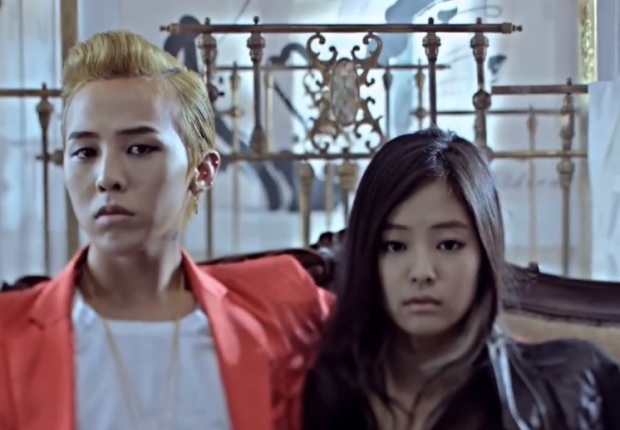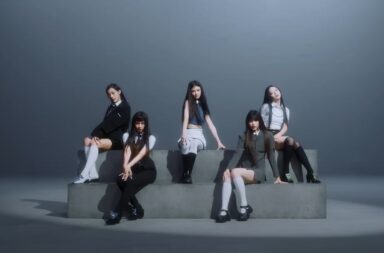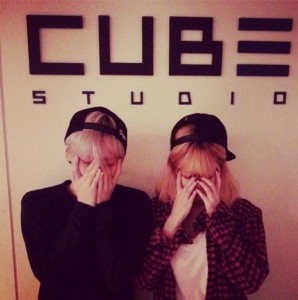 In case there is any debate, let me spell it out. This is not intended to be humorous or satirical. It’s meant to be heavy; and thus, I must make a few necessary disclaimers before I begin.
In case there is any debate, let me spell it out. This is not intended to be humorous or satirical. It’s meant to be heavy; and thus, I must make a few necessary disclaimers before I begin.
Disclaimer 1: The claims made or implied below which address the general tendencies of males and females are broad observations only. They in no way apply to everyone and there is certainly a ton of overlap which is applicable to both sexes. The implications of the below statements are not meant to stigmatize or perpetuate existing stereotypes of males and females, but are meant to generate a larger discussion of the differences and commonalities in both genders. In other words, agreement to the points made is not required. In fact, disagreement is very much welcomed as it facilitates further inquiries and critical analyses of the topics presented.
My purpose is to distinguish what I‘ve noticed about how male and female K-pop fans tend to express themselves, and to dissect the commonalities and underpinnings of these highly frequented statements, eventually bringing it back to how it affects representations of gendered fandoms. This brings me to my next two disclaimers.
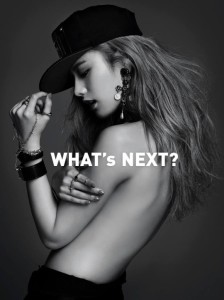
Disclaimer 2: The conclusions I make are not my personal opinions, but are the implications I’ve drawn from analyzing fan statements. If you find these findings to be problematic, please direct your concern towards the larger trend of why fans make these statements and not against myself personally.
Disclaimer 3: The analyses made are based on assumptions of heteronormativity. It is not my intent to promote heteronormativity but to acknowledge it as an indicator of the sexual preference of a majority of the K-pop audience. I understand that the experiences for those who don’t subscribe to heteronormativity may be vastly different. In which case, I encourage those perspectives to be shared.
Without further ado, here are some statements male and female K-pop fans tend to say.
Regarding Female Idols
Males:
She is so beautiful that [insert hyperbole with overly vivid sensory details], which will eventually lead to my certain death by some form of excessive loss of body fluids.
 I’ll admit that was funny the first time I heard it. Maybe even the second. For some reason, male fans love to talk about their devotion to female idols using metaphors of water. The burning need for sexual fulfillment incurred by the physical beauty of female idols is a theme commonly referred to as “thirst.” The problem is, this thirst is impossible to insatiate, leading to the poetic hyperboles which tend to describe the female idol in a mythically divine nature, followed shortly by prepubescent references to the bodily expulsion of a viscous liquid.
I’ll admit that was funny the first time I heard it. Maybe even the second. For some reason, male fans love to talk about their devotion to female idols using metaphors of water. The burning need for sexual fulfillment incurred by the physical beauty of female idols is a theme commonly referred to as “thirst.” The problem is, this thirst is impossible to insatiate, leading to the poetic hyperboles which tend to describe the female idol in a mythically divine nature, followed shortly by prepubescent references to the bodily expulsion of a viscous liquid.
The “horny devil” caricature painted by this representation is not the most agreeable depiction of the male fan, but it’s a good indicator that the physical attraction of female idols exceeds other factors in being K-pop’s main selling point to the general male audience. That is not to say there aren’t many other aspects of K-pop which also appeal to men, but that a large part of why male fans are here is due to the visual draw.
Females:
I don’t get why she is promoted so much more than her group mates. I mean, [insert either 1) example of how she lacks talent, and/or 2) indirect slut-shaming].
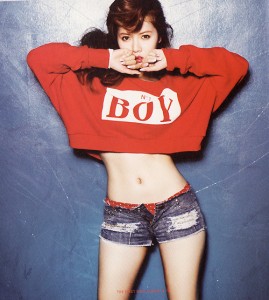 Female fans tend to not hesitate to voice their criticisms of female idols who they perceive as being popular based on factors which are deemed exclusive of “talent.” This is a common judgment female fans have of female idols because of a singular perception of what talent is and what it isn’t. Talent, as defined in its more conventional sense, is seen as an idol’s tangible performance abilities on stage: singing, dancing, and possibly rapping. As we’ll see (spoilers), females tend to qualify male idols too based on these performing talents. As such, this conventionally-defined standard of talent is exactly what female fans use to criticize female idols who they feel are undeservedly popular.
Female fans tend to not hesitate to voice their criticisms of female idols who they perceive as being popular based on factors which are deemed exclusive of “talent.” This is a common judgment female fans have of female idols because of a singular perception of what talent is and what it isn’t. Talent, as defined in its more conventional sense, is seen as an idol’s tangible performance abilities on stage: singing, dancing, and possibly rapping. As we’ll see (spoilers), females tend to qualify male idols too based on these performing talents. As such, this conventionally-defined standard of talent is exactly what female fans use to criticize female idols who they feel are undeservedly popular.
However, there is a second type of talent that often goes under-appreciated: “visual talent” (for lack of a better term). Not that this talent ever goes unnoticed, as there are designated visuals in every male and female idol group, but it’s often dismissed by the female demographic when it comes to assessing female idols. As mentioned above, the visual draw is a very critical selling point for men and visual talent is not to be underestimated. From a marketing perspective, it’s arguably more important than the performing talents when it comes to female idols since their target demographic is primarily men.
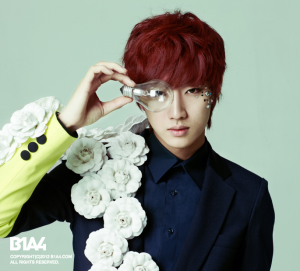
This dissonance between the perception of performing talent and visual talent may be a cause of the slut-shaming of female idols by female fans. Since being visually talented isn’t regarded as a real talent, females view it as unnecessary fan service, and some go as far as defending this view through implying or directly assigning a sexually derogative label to a female idol.
It’s important to note that this image of the narrow-minded and envy-driven female fan is certainly distasteful and not representative of all (or even most) female fans. The takeaway lesson from this shouldn’t be that women are all slut-shamers who degrade other women; it should be that the way some of us view and talk about idols also speaks volumes to how we view and talk about one another in society.
Regarding Male Idols
Females:
He is so talented because of [insert combination of any or all performing talents named above]. And he [insert production credit on latest album or single]. Why is it that he never gets the recognition he deserves?
Seeing as how female fans tend to condemn certain female idols for a lack of performing talent, it’s not surprising that they use the same standard to give praise to or to justify their affection for male idols. In addition, there is an added element of artistic credibility in which a handful of male idols endow, which is the opportunity to work on the production of their group’s music. This too is regarded as a lauded talent due to the artistic integrity that is bestowed with such a privilege.
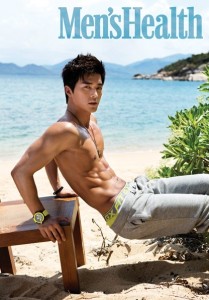 While this rhetoric certainly speaks to the importance of a male idol’s performing and musical abilities, it may also be interpreted as a way to downplay the importance of visual talent. That is not to say that women aren’t open about the visual persuasion of male idols, but it indicates that a male idol’s visual appeal alone is insufficient or incomplete. Female fans tend to pay more careful attention to the holistic package.
While this rhetoric certainly speaks to the importance of a male idol’s performing and musical abilities, it may also be interpreted as a way to downplay the importance of visual talent. That is not to say that women aren’t open about the visual persuasion of male idols, but it indicates that a male idol’s visual appeal alone is insufficient or incomplete. Female fans tend to pay more careful attention to the holistic package.
Not only must a male idol be passably attractive, he must possess other talents that allow him to stand out among the sea of other attractive male idols. Because once he enters the favoritism of the female fan, her affections are not given lightly. She speaks of him not only in flattering tones, highlighting his strengths and brushing aside his flaws, but also in a way which indicates that he is overlooked — if only others may see the things she sees, they may also share with her this incredible feeling of longing.
Again, this is not the greatest depiction of the female fan, but at least it shows that she is willing to be very loyal and that her adoration is not given lightly. In contrast to the male fan’s longing for a female idol — one which is based largely on physical desire — the female fan’s longing for a male idol is an intricate combination of the male idol’s physique, abilities, and intangible charms.
Males:
…
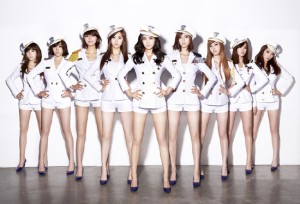 The void above is not to indicate that male fans do not pay much attention to male idols. Similar to the misconception that girl groups don’t have many female fans, the opposite is also untrue. However, given that there is a much smaller sample size of males who choose to publicly express their fan identity, there just isn’t an encapsulating statement I could find in which male fans express a tendency on how they view male idols.
The void above is not to indicate that male fans do not pay much attention to male idols. Similar to the misconception that girl groups don’t have many female fans, the opposite is also untrue. However, given that there is a much smaller sample size of males who choose to publicly express their fan identity, there just isn’t an encapsulating statement I could find in which male fans express a tendency on how they view male idols.
Of course, there is always this opinion from certain types of males who are not too familiar with K-pop, but I’m truly curious as to what opinions seasoned male fans can come to a consensus on in regards to male idols. Please share in the comments!
Wildcard Round
Here are two statements I want to briefly touch upon, which I won’t explore in any depth but rather open up for discussion on whether or not they are truly gender-specific.
Males:
You don’t choose your bias, your bias chooses you.
 Pushing the logic aside, I guess I can understand where this is coming from. Since this is clearly a major consensus among male fans, I wonder if the same applies for females. Based on the findings I’ve made about the specific tendencies of each gendered fandom, I’d say this statement is more than applicable to both.
Pushing the logic aside, I guess I can understand where this is coming from. Since this is clearly a major consensus among male fans, I wonder if the same applies for females. Based on the findings I’ve made about the specific tendencies of each gendered fandom, I’d say this statement is more than applicable to both.
Females:
I don’t care what anyone says, “Wolf” is my jam!
I’ll admit that this is a bit of a stretch, and I know it’s highly improbable that not one single male will stan for this song, but I’ve yet to hear any resounding positive remarks about the musical aspect of “Wolf” from anyone identifying as male (other than from the guy who wrote it). I’m not going to go into the implications of this statement because it may very well be a poor misconception on my part which I hope will be disproved by multiple claims below. Would anyone care to share?
(Images via YMC Entertainment, Pledis Entertainment, Yes, Cube Entertainment, WM Entertainment, SM Entertainment, Men’s Health)
